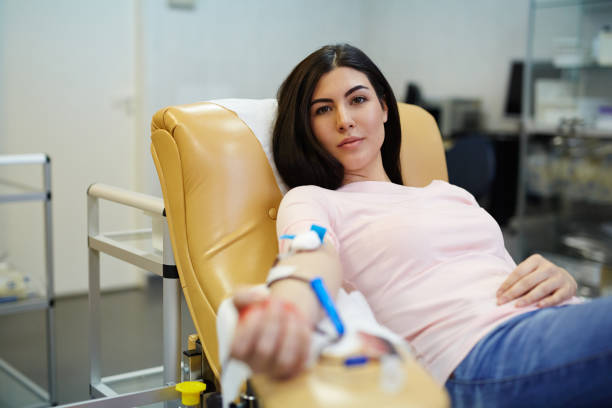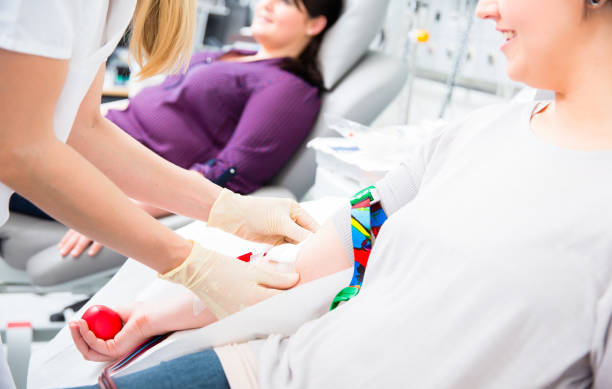Qualifications to Donate Plasma
Introduction to Plasma Donation
Plasma donation is a vital process that helps save lives by providing essential components for various medical treatments. Plasma, the liquid portion of blood, contains important proteins and antibodies used in therapies for patients with chronic illnesses, immune disorders, and clotting problems. However, not everyone is eligible to donate plasma. This content explores the qualifications required to become a plasma donor, ensuring both donor safety and the integrity of the plasma supply.
Basic Eligibility Criteria
To donate plasma, individuals must meet several basic eligibility criteria. These requirements are designed to protect both the donor and the recipient of the plasma products. Generally, plasma donors must be in good health, meet age and weight criteria, and pass a comprehensive health screening.
Age Requirements
The minimum age to donate plasma is typically 18 years old. Some plasma donation centers may allow 16 or 17-year-olds to donate with parental consent. The upper age limit varies by donation center, but most allow healthy individuals up to 65 or even 70 years old to donate.
Weight Requirements
Donors must meet certain weight requirements to ensure that their plasma donation is safe and effective. The minimum weight is generally 110 pounds (50 kilograms). This requirement helps ensure that the donor has enough blood volume to safely donate the required amount of plasma.
Health and Lifestyle Criteria
Potential plasma donors must be in good overall health. This means they should not have any chronic illnesses, infections, or conditions that could affect the safety of the donation process or the quality of the plasma. Common health checks include screening for diseases, blood pressure, and hemoglobin levels.
Medical History and Medications
A thorough medical history is taken to identify any conditions that might disqualify someone from donating plasma. Conditions such as HIV, hepatitis B or C, and certain types of cancer can disqualify a donor. Additionally, certain medications may affect eligibility. For example, individuals taking blood thinners or certain immunosuppressants may be temporarily or permanently deferred from donating.
Travel and Exposure Risks
Travel history is also an important factor in determining eligibility. Individuals who have traveled to regions with high incidences of malaria, mad cow disease, or other infectious diseases may be temporarily deferred from donating plasma. This is to ensure that the plasma supply remains safe and free from infectious agents.
Lifestyle Factors
Lifestyle choices such as drug use, sexual activity, and tattooing can impact eligibility. For example, individuals who use intravenous drugs or have recently received a tattoo or piercing may be deferred for a certain period. This is to reduce the risk of transmitting infections through the plasma.
Blood Donation History
Those who donate plasma frequently may also donate blood. However, there are guidelines on how often a person can donate. Typically, whole blood donors must wait 56 days between donations, while plasma donors can donate more frequently, often twice a week, due to the body's ability to replenish plasma quickly.
Screening and Testing
Before each plasma donation, donors undergo a screening process to ensure they are healthy and eligible to donate. This includes a physical examination, a review of medical history, and testing for infectious diseases. These tests help protect the donor and ensure the safety and quality of the plasma collected.
Importance of Hydration and Nutrition
Donors are encouraged to stay well-hydrated and maintain a healthy diet before donating plasma. Proper hydration helps ensure a smooth donation process, as plasma is primarily composed of water. Eating a nutritious meal with sufficient protein and iron before donation can also help maintain energy levels and prevent adverse reactions.
Repeat Donor Considerations
Frequent plasma donors must adhere to specific guidelines to ensure their health is not compromised. These guidelines include regular health check-ups and monitoring of protein and iron levels. Plasma centers often have specific protocols to track the health and well-being of regular donors, ensuring they remain eligible to donate.
Special Considerations for Female Donors
Female donors may have additional considerations, such as pregnancy status and menstrual health. Pregnant women are typically not eligible to donate plasma. Additionally, women with low iron levels due to menstruation may be temporarily deferred until their iron levels return to normal.
The Role of Plasma Centers
Plasma donation centers play a crucial role in ensuring the safety and quality of plasma donations. These centers follow strict protocols and guidelines established by regulatory bodies such as the FDA and international health organizations. They provide a safe environment for donors and ensure that all collected plasma meets high standards for medical use.
Conclusion
Donating plasma is a generous act that can significantly impact the lives of patients in need. Understanding the qualifications and requirements for plasma donation helps ensure that donors are healthy and that the plasma collected is safe and effective. By adhering to these guidelines, donors can contribute to life-saving treatments and support the healthcare system.




